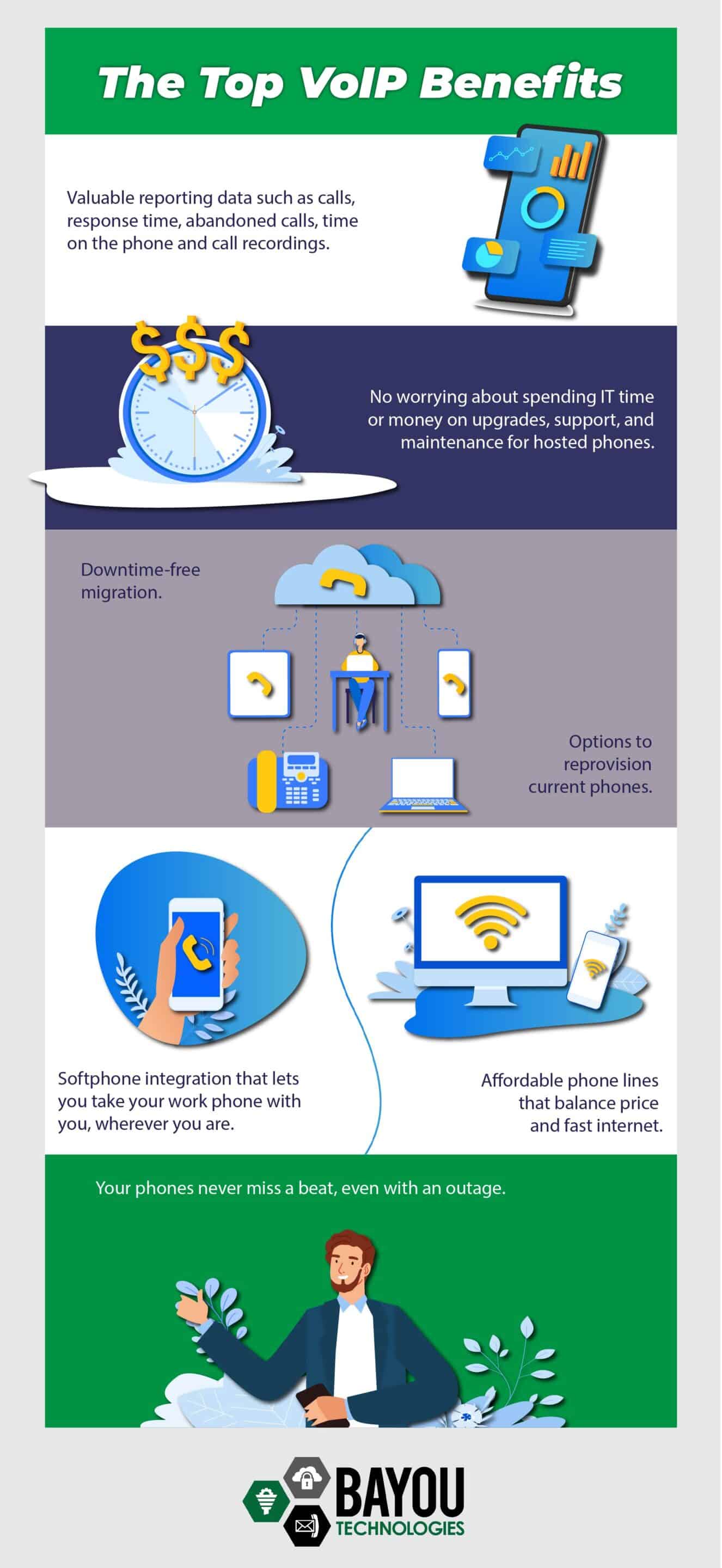In today’s business world, effective communication is a must-have. Every aspect of your business depends on smooth connectivity to meet client expectations, and technology is the superhero that makes it all happen.
While emails and instant messaging have transformed communication, business phones remain a crucial tool. Any business serious about communication, growth, and success needs to think about its telephone solution. So, the big question is: could VoIP phones be the game-changer for your business?
If you’re unsure, don’t worry. We’ve put together this ultimate VoIP guide with a straightforward breakdown of the most common questions about VoIP and our easy-to-digest answers.
What Is VoIP, and How Is It Different from Traditional Phones?
VoIP (Voice over IP) business phones let you make and receive calls over the internet. They offer 99.999% uptime reliability, crystal-clear connections, and top-notch features not typically found in traditional phone services. Plus, some VoIP providers offer a simple “pay per user” model and package tiers with the right features for your business. You can learn more about pricing options here.
Are There Different Types of VoIP Systems?
Yep, there are two main types: on-premises and hosted phones. The difference? On-premises setups have the system appliance located at your place, probably in a server room. Hosted setups keep the appliance in an offsite data center, accessed through the cloud.
Is VoIP Complicated?
Not really. On-premises solutions mean your on-site IT team manages it locally, while hosted solutions are outsourced to an offsite location and handled by a third-party vendor.
How Does VoIP Keep Business Going in Shutdowns or Disasters?
VoIP ensures business as usual during power outages or when your office is off-limits due to disasters like hurricanes, fires, or floods.
What Are the Key Benefits of a VoIP System?
VoIP phones make life easier by reducing issues with replacements, repairs, and managing employees. Unlike traditional landline systems with long wait times for fixes, VoIP systems cut downtime. Plus, VoIP offers flexibility with various call routing and answering options without the need for pricey on-premises tech and staff.
Assigned business phone numbers in VoIP systems let employees handle work calls on any device, whether they’re in or out of the office. Perfect for businesses with mobile, remote workers and those utilizing Bring Your Own Device (BYOD) policies.
Whether your team is in one spot or scattered across multiple sites, tied to desks, or always on the move, dealing with incoming or outgoing calls, VoIP tailors a solution that fits your business communication style.






